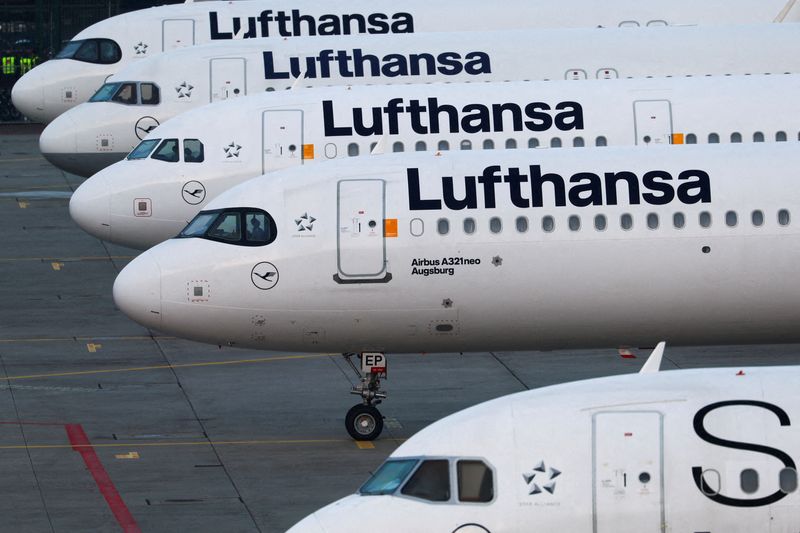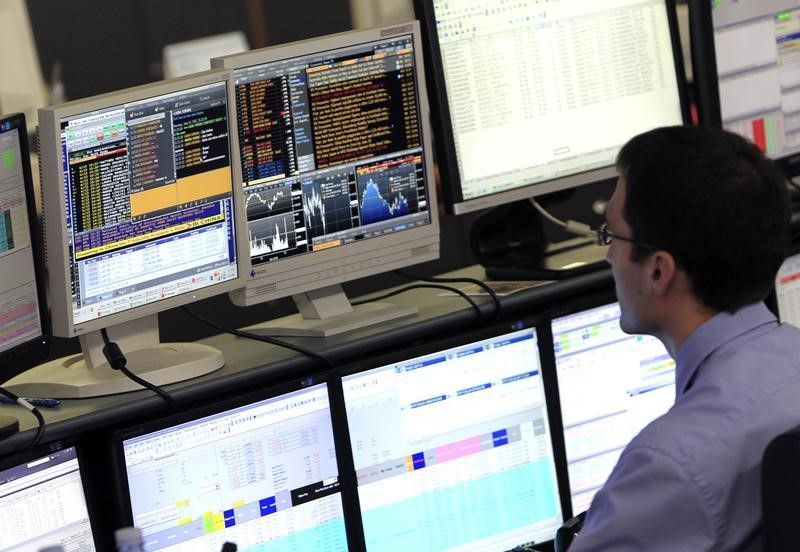By Joanna Plucinska
LONDON (Reuters) – It took a year of wrangling with the European Commission to get Germany’s Lufthansa allowed to buy 41% of Italy’s ITA Airways, and only after it had accepted major concessions.
While the deal expands Lufthansa’s footprint in the lucrative southern European market, the combined group will have to cede some routes and slots to rivals to continue.
Industry executives, investors and experts say greater scrutiny of such ties by European regulators and demand for solutions could deter major airlines from further deals.
British Airways owner IAG has been in the crosshairs since 2019 when it announced plans to buy Spanish airline Air Europa, with an August 20 EU deadline for concessions, while regulators are also expected to review Air France-KLM’s plan to purchase 19.9% research. of the Scandinavian airline SAS.
Airline executives have long said consolidation is needed to help offset rising operating costs and help airlines recover from the COVID-19 pandemic, which brought global travel to a standstill and pushed the travel industry to the brink of collapse.
But regulators worry that Europe’s three biggest groups, IAG, Air France-KLM and Lufthansa, are becoming too dominant, potentially harming consumer choice and making flying less affordable.
“We can see that Europe is becoming increasingly cautious about this wave of consolidation,” said Piotr Grobelny of aviation data analytics firm IBA.
The next candidate for privatization is the Portuguese TAP. But Lisbon’s plans have been derailed by political unrest, despite interest from Air France-KLM, Lufthansa and IAG.
TAP CEO Luis Rodrigues said last month that the new center-right government should not sell 100% of the airline and should also bring in non-aviation investors such as private equity.
That could allay concerns in Brussels about the potential of a sector dominated by a handful of major aviation groups.
A banker who focuses on mergers said airlines are wary of losing time and money on legal fees and giving up valuable take-off and landing slots to get approval for deals.
More complex deals can take up to two years to complete, says Martina Farkas, M&A partner at Linklaters, adding: “Deals are taking longer and becoming more complex and expensive.”
“It cannot be ruled out that strategically important deals that attract regulatory attention have the potential to be delayed and face new hurdles,” Farkas told Reuters.
NO CONCESSIONS
Deal-making can also be complicated because governments often have stakes in national carriers that they view as strategic assets that are too important to fail.
Britain’s Monarch went bankrupt in 2017 and FlyBe was declared bankrupt, but many other airlines have been kept afloat by taxpayers’ money, especially during the pandemic.
Former EU competition commissioner Didier Reynders told the Financial Times last year that regulators would seek tougher concessions from those seeking to merge to ensure fair competition and reduce market concentration among the big three.
This was at the heart of IAG’s battle to acquire Air Europa. It has made more concessions, such as making 52% of Air Europa’s flights available to rivals, to allay concerns about its dominance of the Iberian market, and to reassure regulators that it will keep competition on long-haul routes to South -America will not diminish.
IAG said on Wednesday it was pleased that the Commission recognized the benefits of airline consolidation. Shares rose more than 5% on expectations that approval of the ITA deal would increase the likelihood that the Air Europa takeover would be greenlit.
According to an analysis of IBA data, IAG has 50% of the slots at Madrid’s main airport and 47% at Barcelona’s main airport.
Executives fear the Commission will make demands that are practically impossible to meet, halting dealmaking.
“The alternative to the consolidation that is taking place is that airlines will continue to be funded by governments, and that is only going to get worse,” Johan Lundgren, CEO of easyJet (LON:), told Reuters.
BUDGET BEARERS
Other analysts point to the rise of low-cost carriers as an area overlooked by competition authorities.
In Lufthansa’s ITA purchase, many have pointed to Ryanair’s dominance in Italy, where it has a market share of more than 40%.

But competition authorities had not included the Irish budget airline in their assessments because they do not consider Lufthansa and ITA as direct rivals.
Ryanair offers more flights than any other airline in Europe, with 11.49% of the total, according to an IBA analysis. Lufthansa and IAG are just behind, with 9.54% and 8.2% respectively.


